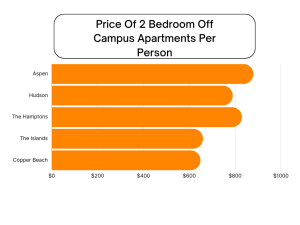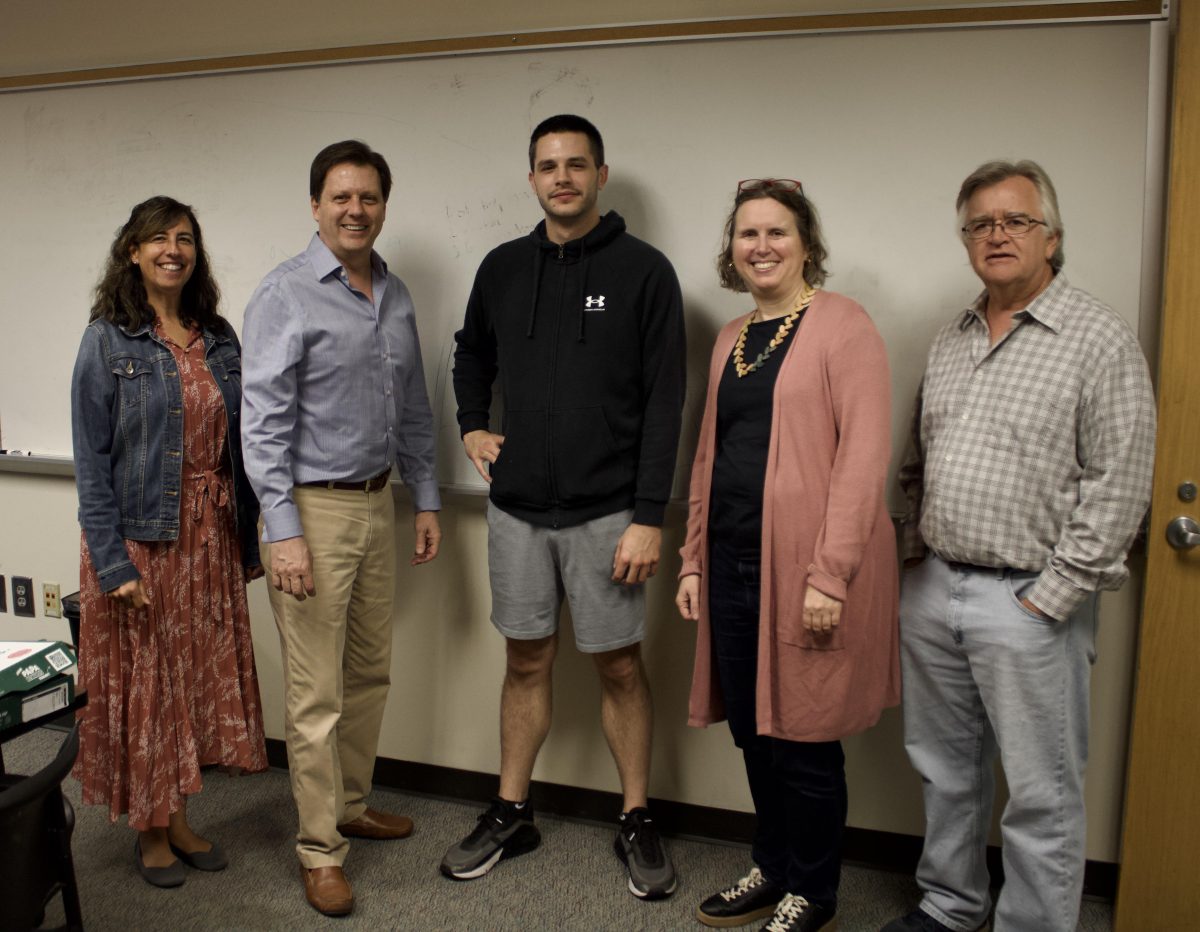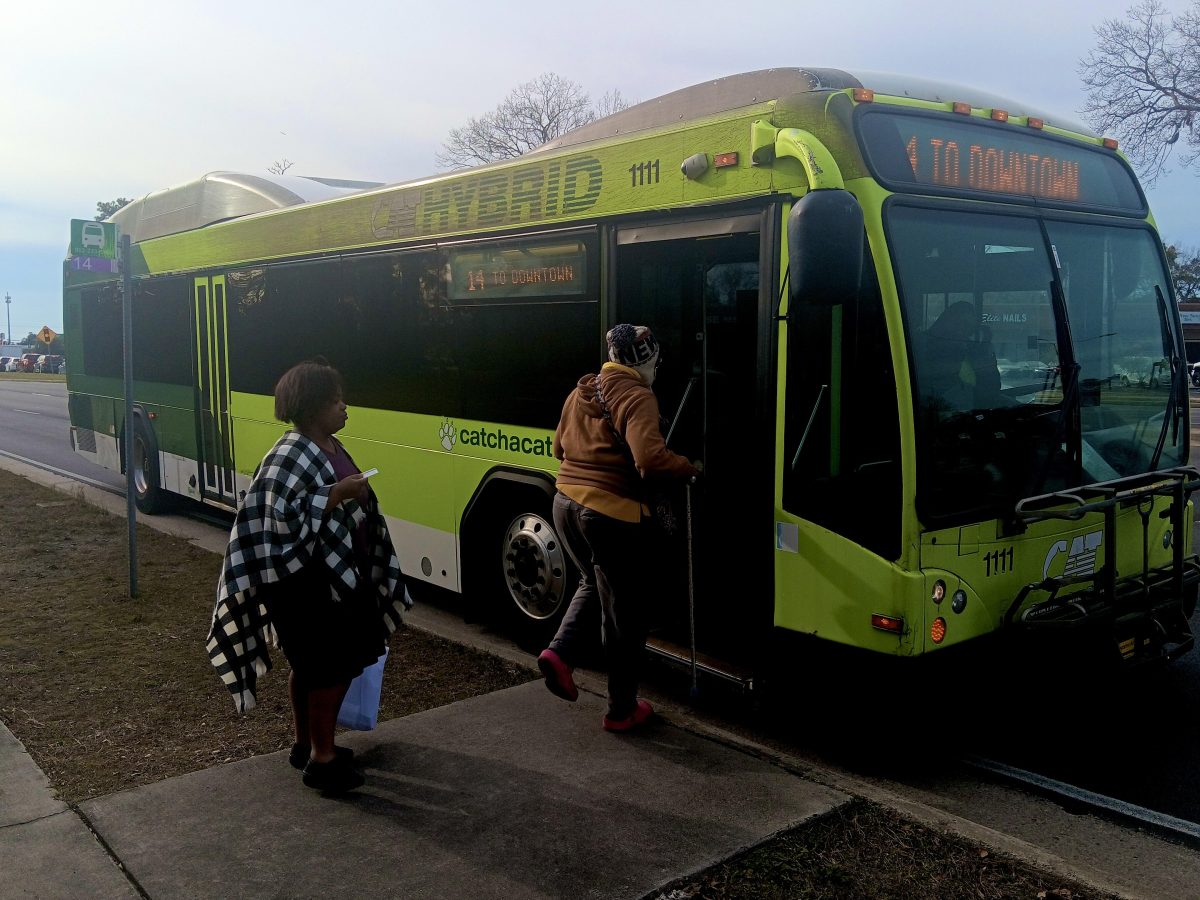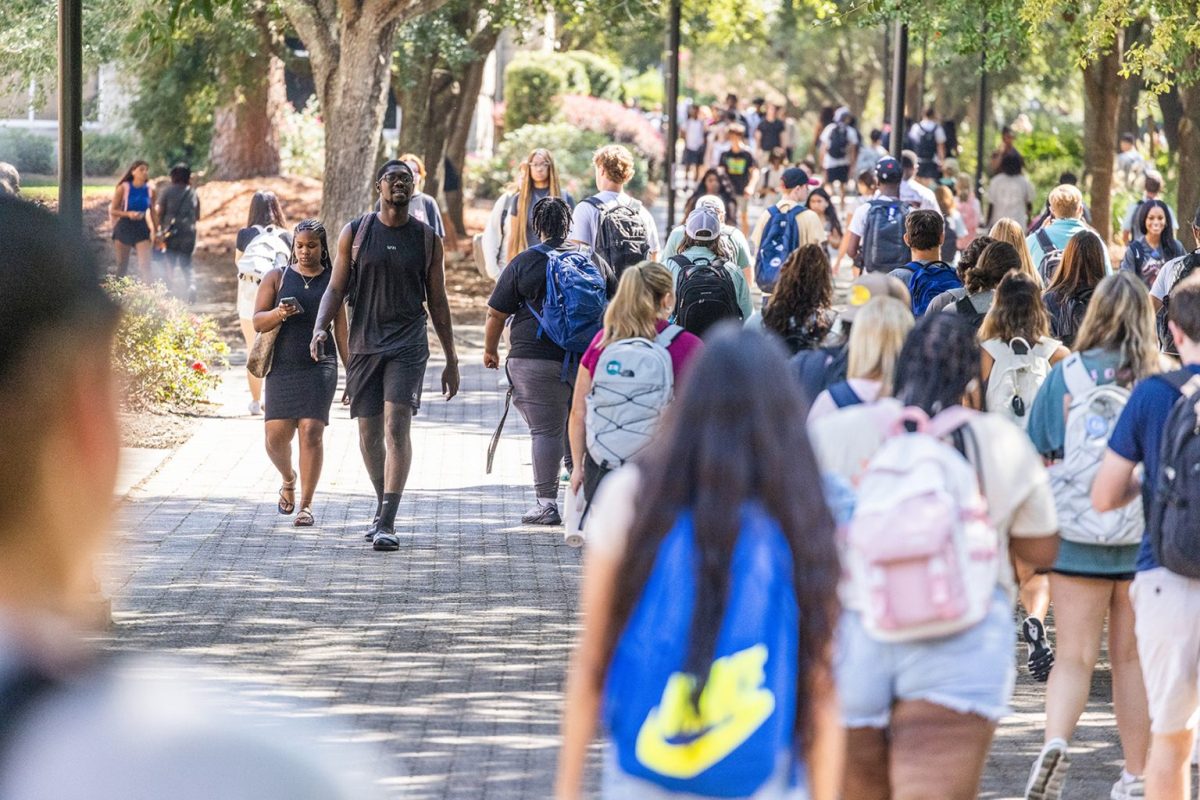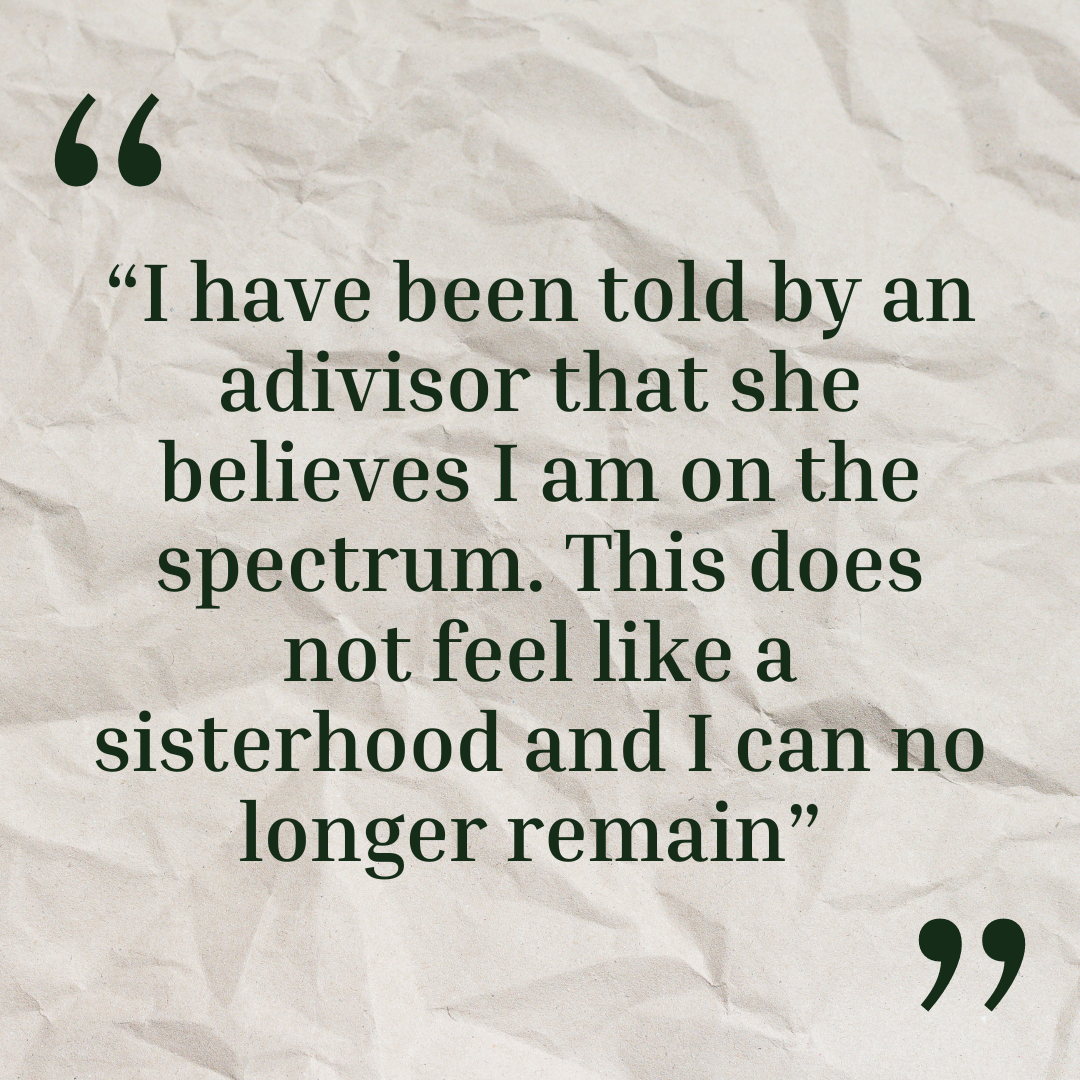Madison Watkins, Editor-in-Chief
To say Georgia Southern has been going through growing pains post-consolidation is putting it lightly. From the low-enrollment, particularly on this campus, low morale, commencement issues and negativity towards how administration handles diversity flashpoints, the university has been through a lot the past year.
After the fallout of the “trigger-ish” incident, administration reached out to the Center for Strategic Diversity Leadership and Social Innovation to assess the university and how it can improve to become a more inclusive university.
Dr. Damon Williams, along with his colleagues from the Center for Strategic Diversity Leadership and Social Innovation put out a campus climate survey to all students, faculty and staff, campus listening sessions and interviews, campus-wide community forums and an organizational university audit to collect the data they needed.
After holding events and collecting data throughout the 2018-2019 school year, the report was published by administration on Aug. 28.
The published report was written by Damon A. Williams, PhD, Brandy Bryson, PhD, Caitlin Fass, PhD, Derrick Jenkins, EdD, Raul Leon, PhD, Sallye McKee, PhD and Deiadra Gardner, BS.
“The valued and belonging scores were particularly low across all three campuses (36-55%) and represent a finding that should be pondered closely by campus leadership.”
The final report showed “generally low marks in all three dimensions of general satisfaction, feeling valued and belonging, and institutional commitment to diversity” at all three campuses. The most positive responses were recorded by the Liberty campus, followed by Statesboro and then Armstrong.
Liberty reported 84% for campus climate and 80% for institutional commitment while Statesboro reported 67% and 59% and Armstrong reported 55% and 50%.
It was also stated in the report, “the valued and belonging scores were particularly low across all three campuses (36-55%) and represent a finding that should be pondered closely by campus leadership.”
Liberty campus reported 60% in regard to feeling valued and belonging, while Statesboro reported 49% and Armstrong reported 36%.
“Overall, fewer than half of all participants (46%) felt like they belonged on campus.”
It was clear that there was little trust between students and the administration…” – Dr. Carl Reiber
In regard to racial and ethnic identity, there were low overall scores, “with no group scoring 70 percent on any indicator, save Hispanic/Latino(a) respondents (72%) in terms of general satisfaction with climate.”
In regard to the perception of institutional commitment to diversity, “scores by racial and ethnic identity ranged from a percentage low in the 40s among Blacks and those not racially identified, to a high of only 66 percent among the relatively small number of Asian American/Asian respondents.”
It was noted in the report that “the hurtful impact of leadership’s response to the ‘triggerish’ incident as well as ‘the use of the n-word in the classroom’” was brought up repeatedly in activities hosted by the Center for Strategic Diversity Leadership and Social Innovation.
They followed this statement in the report with, “we believe these incidents created a suppression of campus climate generally, but especially on the Statesboro campus.”
In regard to gender identity, the report stated “men reported significantly more positive experiences compared to other gender groups while gender non-conforming community members reported the most challenging experiences and significantly reduced perception across all measures, including institutional commitment (non-conforming 40% positive, women 56%, men 63%).”
In regard to sexual orientation, it was reported “heterosexual respondents rated all three measures [general satisfaction, feeling valued and belonging and institutional commitment to diversity] significantly higher (65%, 48%, 60%) than LGBTQIA respondents (56%, 36%, 47%).”
“While many listening-session participants were quick to note the importance of race and ethnicity, they also mentioned the need for the university to frame diversity and inclusion work in ways that embrace issues of sexuality, gender and intersectionality.”
To combat all of these issues, there are seven recommendations listed to “foster open communication with the campus community about [the university’s] next steps.”
The recommendations are:
- Rapidly prototype a new strategic diversity leadership framework, accountability system and launch plan to guide your work.
- Move fast and create vision and architecture for change that activates as part of your new strategic plan and demonstrates action to the campus community.
- Choose big-bet action steps to drive change.
- Put in place several big-picture initiatives that can spark real change over time.
- Develop the role of AVP for Strategic Diversity Leadership and build an Office of Inclusive Excellence
- Establish a meaningful diversity and inclusion role that is more than a symbolic figurehead and is well positioned to support DEI efforts on all three campuses.
- Develop a campus-wide lateral diversity infrastructure in every school, college and divisional area.
- Build a campus-wide infrastructure of DEI roles, processes and expectations to activate a consistent and meaningful commitment to change.
- Implement a full campus climate survey in the fall of 2020.
- Gather follow-up data to benchmark for the winter 2019 survey, to assess change and progress.
- Strengthen GSU’s institutional diversity brand in the area of diversity, equity and inclusion.
- Create communication strategies to tell the positive narrative of diversity with transparency and authenticity.
- Lift up the strategic campus integration journey across Statesboro, Armstrong and Liberty campuses.
- Develop an approach to heal through the pain of consolidation, creating a new narrative that dovetails with this report and the new strategic plan.
Now we as a campus have to own this and move it forward.” – Dr. Carl Reiber
VP of Academic Affairs Dr. Carl Reiber stated in the university-wide email that published the report that administration is already in the process of:
- Starting a national search for an AVP of Inclusive Excellence. This position will function as our Chief Diversity Officer (CDO), will report directly to the president and will serve as a member of the president’s cabinet.
- Developing an Advisory Council and Student Advisory Council. Their first priorities will be to develop our own definition of Inclusive Excellence, and to begin aligning efforts with our strategic plan.
- Planning a climate study for the university to benchmark sentiment and allow us to measure progress.
“Now we as a campus have to own this and move it forward. We have to embrace the values that we hold dear and make sure that we start living those in the classroom, out of the classroom.” Reiber stated in an interview with The George-Anne Inkwell Edition in response to the report.
Reiber went on to say, “it permeates our culture that we respect each other’s cultures, respect each other’s opinions, when people voice opinions that may not align with ours.”
On the topic of the troubles we went through last year Reiber said, “it was clear that there was little trust between students and the administration, between faculty and students. People just didn’t trust each other and I think we ended up at the end of the year in a much better place.”
“A lot of the mistrust was because there was little communication and so we want to make sure that [there] is an open dialogue.”
How the university will move forward?
“What ultimately I would like to see is that the campuses is just very welcoming and embracing of our differences whether they’re religious, whether their sexual orientation, whether their race, we welcome that and recognize how important it is. It’s the world we live in and so we as a university have to embrace that and then carry it forward,” Reiber finished.
Check our website and read next week’s issue for further coverage on the Inclusive Excellence Report.



